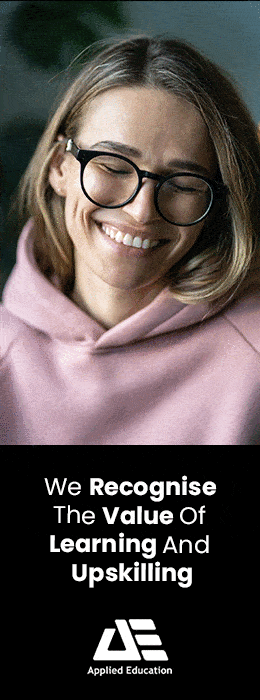
Why Learn Bookkeeping and Accounting?
Every company deals with money in some form or another. There are always income and expenses that need to be recorded and cash flow to be managed. This applies to both small businesses and massive global corporations alike.
There have been concerns that the accountancy industry might be in decline, due to technological advances and the automation of processes. However, the reverse is actually true. In Australia, employment growth in accountancy has been three times higher over the last two years than in all other occupations.
Now is a great time to learn accountancy and bookkeeping. Read on to find out more about accounting and bookkeeping and why it could be your next great career move.
Table of Contents
What is Bookkeeping?
Bookkeeping is a process for recording financial transactions. This used to be a manual process, but usually involves computer software these days. Bookkeepers also prepare reports and bank deposits.
The key purpose of bookkeeping is to maintain accurate records. Bookkeepers also manage the general ledger for their clients. Often this will also involve producing financial statements, monitoring revenue and accounts receivable.
The Basics of Bookkeeping
Before you learn accounts, you need to get the basics of bookkeeping under your belt.
Accounts essentially are records of all the debits and credits of a certain type. This might be payroll, or accounts payable.
Bookkeepers also need to know the difference between assets and liabilities. Assets is the term used to describe things of value or resources owned by the company, as a result of transactions. Liabilities are obligations or debts a company owes to suppliers, banks or lenders, or other providers or services or goods.
Bookkeeping is all about recording revenue or income, and expenses. Income is made up of money earned by the company through sales of its goods and services. Expenses refer to the cash that leaves the company when it purchases assets or services.
How Can I Lean Bookkeeping and Accounting?
For someone wanting to begin their career in an accounts administration or bookkeeping role, there are plenty of options. The best place to start is an introductory course covering accounting and bookkeeping fundamentals.
You can study online at your own pace to learn the basics of accounting, including accounts receivable and accounts payable and payroll fundamentals.
You will learn all about bookkeeping language and terminology and how to record business transactions. Bookkeepers also need to understand different types of business organisations and their activities, as these are all relevant to processing financial information.
How Long Does it Take to Learn Bookkeeping?
Different training options take different lengths of time. Some introductory courses can be as short as a year, while others will take longer. Once you've mastered the basics, you can consider moving on to a more advanced qualification.
One of the many benefits of choosing bookkeeping and accounting as a career is that you don't need a degree to enter the profession. Only 12% of bookkeepers have degrees. Not only does this remove barriers to entry to the profession, but it also means that gaining professional qualifications throughout your career can help you to progress.
What Skills Do I Need to Become a Bookkeeper?
If you're considering a career in bookkeeping and accountancy, you might be wondering, is bookkeeping easy to learn? If you have the right skills and follow a high-quality training course, then it should be. Let's look at some of these skills that will stand you in good stead in a bookkeeping career.
Maths Skills
It goes without saying that basic maths skills are essential. Managing numerical information is a big part of daily life as a bookkeeper, so you need to be confident with handling figures.
Attention to Detail
Financial records must be completely accurate, down to the last cent, and details must be double-checked to ensure there are no mistakes. Another aspect of the bookkeeper's role is to check financial reports and statements to check for errors, so it's essential to be detail orientated.
Problem-solving skills
If errors are identified during the process of reconciling financial accounts, it can take a bit of detective work to find the root cause of the problem. It's essential that discrepancies are resolved in financial reports and that income and expenses are accurate and balanced.
Organisational skills
Bookkeepers need to be very organised, as many work for multiple clients at once or cover multiple areas for one client. They might look after payroll as well as accounts receivable and deliverable, for example. So keeping financial information well-categorised is crucial.
Integrity
Finally, it's important that anyone working in financial services has a strong sense of integrity. Financial information is always confidential and often sensitive. Transparency is also critical, as financial matters have to be dealt with in accordance with the relevant laws and regulations of the country where the company is located.
What's the Difference Between Bookkeeping and Accountancy?
It might seem that bookkeeping and accountancy are the same professions. While there are some similarities, there are also some key differences too. It's helpful to understand these when embarking on a career change.
Bookkeepers are mainly responsible for recording financial transactions. Accounting is more concerned with interpreting, summarising and communicating financial transactions. Data provided by accountants are more likely to influence management decisions.
Many professionals start out in bookkeeping, then progress to more senior roles in accountancy later in their career. Others choose to specialise in particular areas, such as payroll services.
Time to Make a Change?
Making the decision to learn bookkeeping and accounting could be the best decision you make for your career. With good prospects for advancement, interesting work and varied roles, this is a great to enrol start an accounting career.
To find out more about our wide range of courses, based in several learning centres across Australia, don't hesitate to contact us now. Our helpful team will help you choose which course is right for you as you take this exciting step into a prosperous future.
If you are looking to re-skill or up-skill but unsure of which course best suits you, get in touch with one of our consultants today and we will endeavour to help you.



